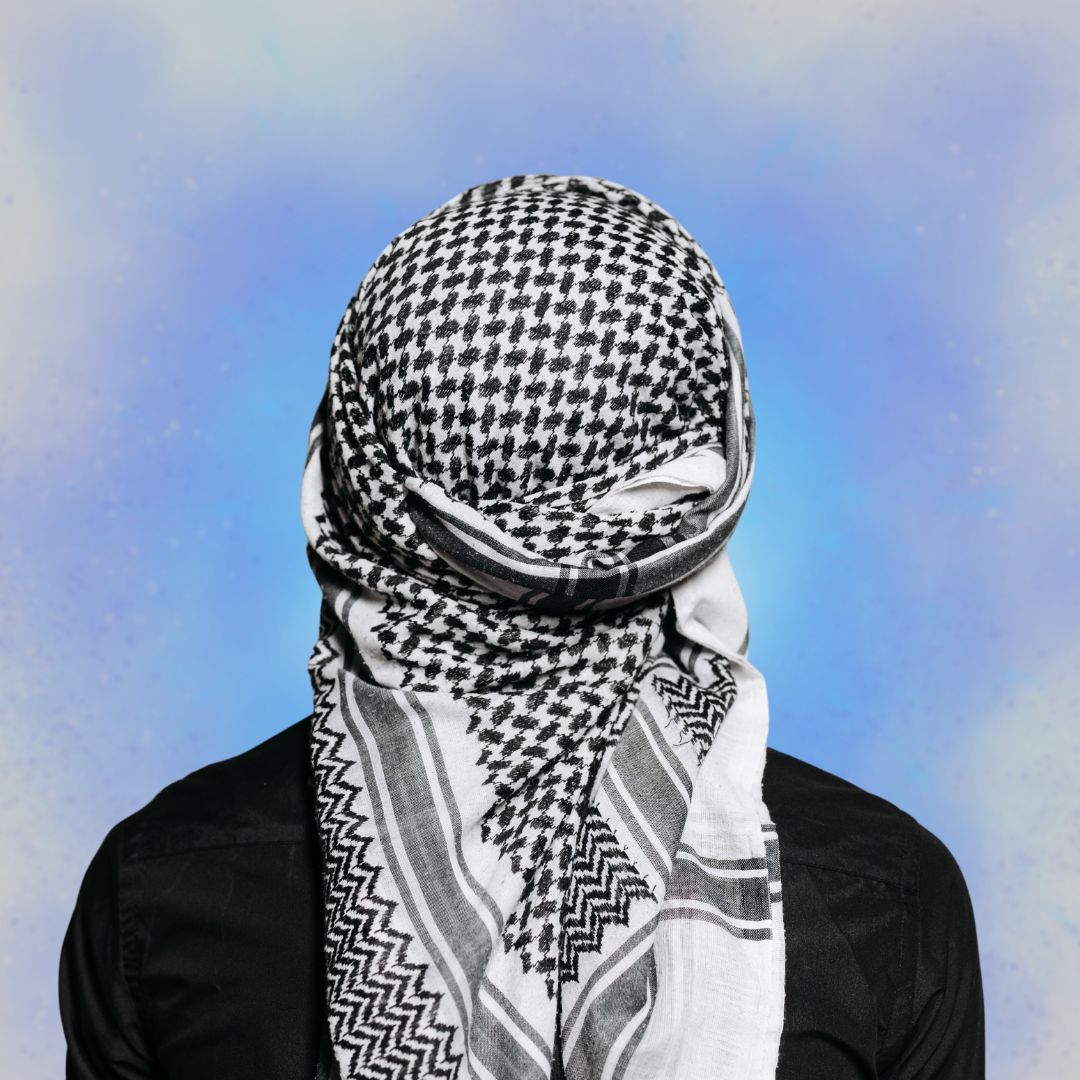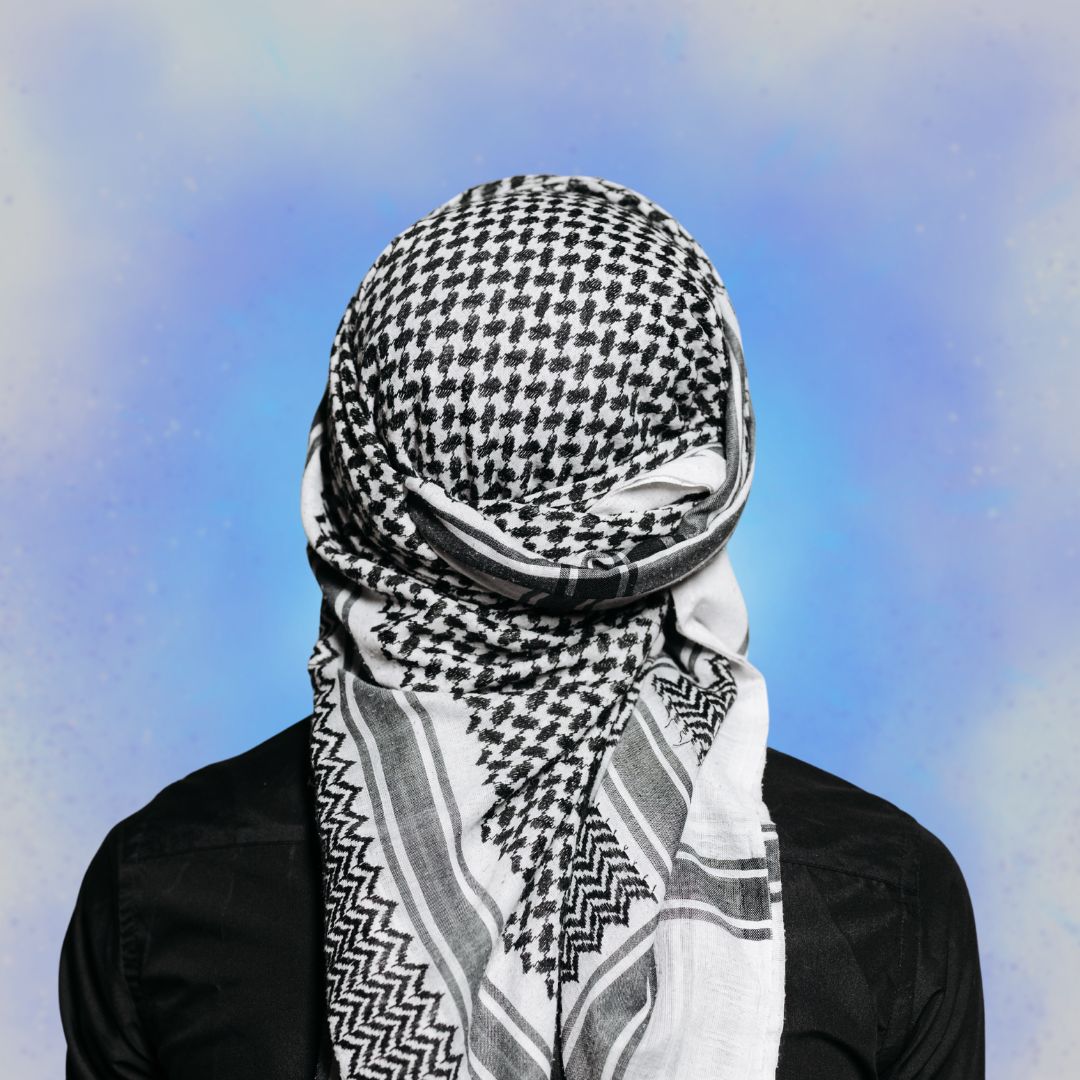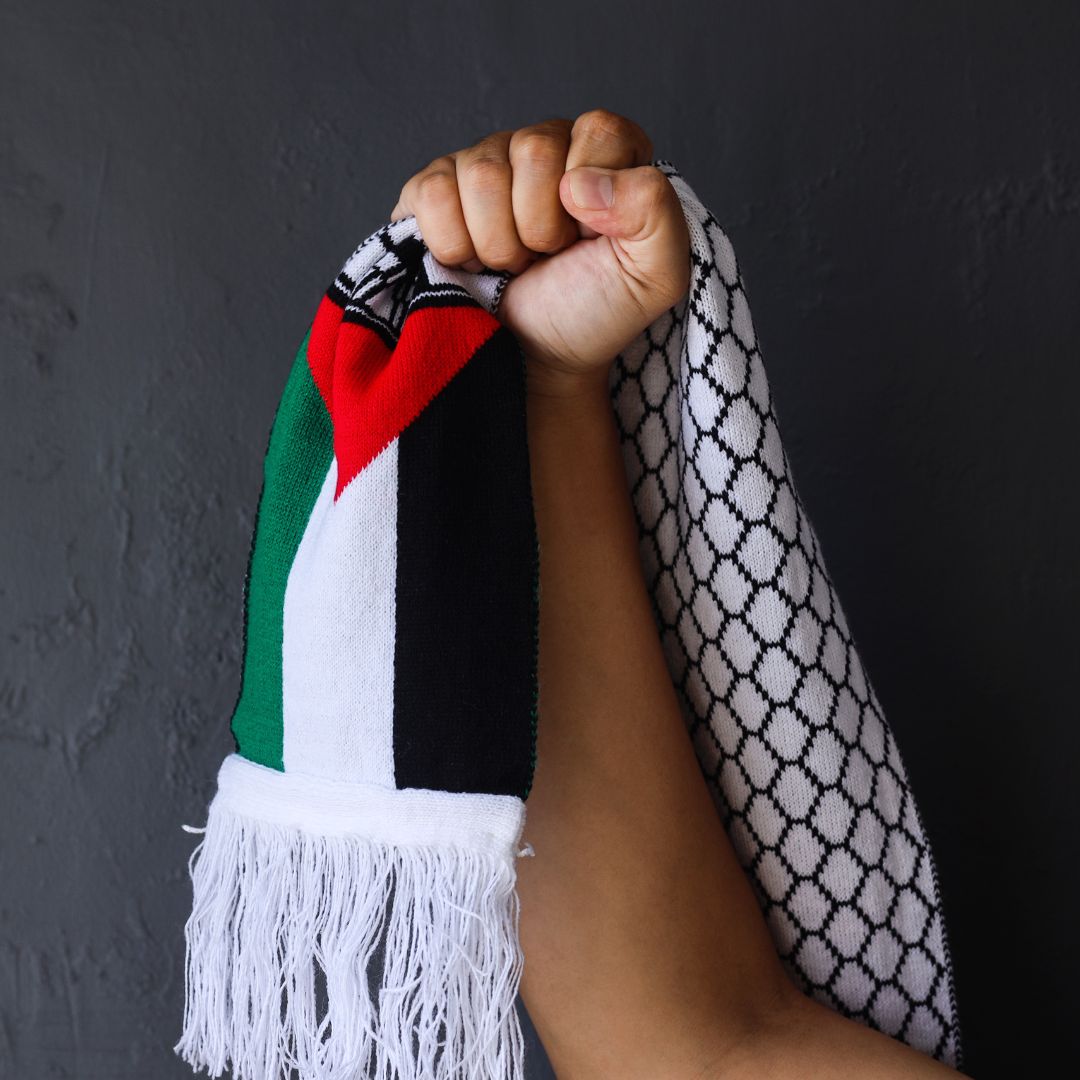


History has seen many revolutions across the globe result in sustained political reform, the end to brutal regimes and the realisation of freedom and self-determination to oppressed populations.
But what makes a revolution?

The Palestinian keffiyeh, a traditional cotton headdress, has become a symbol of Palestinian nationalism and resistance
Since October 7 and Israel’s subsequent Operation Swords of Iron, there has been a surge in global solidarity with Palestine. Through the intense efforts of Palestinians living in Gaza, the Palestinian diaspora and global allies, an unprecedented number of people across the globe have opened their eyes to the brutal occupation and ongoing genocide of Palestinians.
In the last eight months, millions have taken to the streets in protest, calling for international intervention, a permanent ceasefire and self-determination for Palestinians. Support for the Boycott Divest and Sanctions (BDS) movement has grown and is causing major economic losses for companies such as Starbucks and Puma for their complicity. Non-violent direct action has shut down the operation of numerous Elbit Systems arms factories, Israel’s largest weapons manufacturer, and even forced Elbit to sell its Staffordshire factory. The operation of public services such as train stations have also been disrupted and thousands of school and university students staged walkouts throughout the final months of 2023.
Yet still, Israel continues to escalate its assault on Gaza, violence in the West Bank and arbitrary detention and killing of Palestinians.
Yet still, international governments continue to pledge their steadfast support of Israel through arms exports and refusal to condemn Israel’s actions.
In April of this year, students at Columbia University built a Palestine solidarity encampment, demanding university divestment from Israel and freedom for Palestinians. This show of solidarity initiated a chain reaction whereby despite violent police retaliation and educational repercussions, more universities set up their own solidarity encampments, garnering mass media attention. This movement has quickly reached global scale and has prompted some universities to rethink their investments in Israel and weapons manufacturers.
Yet still, Israel is unabated in its airstrike offensive on Rafah and Jabalia, has blocked the border to Egypt – the life or death passage for Gazans – and is escalating its campaign of dispossession in the West Bank.
Yet still, there is no ceasefire and no self-determination for Palestinians.
So is this revolution?
No. At least not yet. Not until Palestinians are liberated from their oppressors.
Then what does make a revolution?

Pro-Palestine demonstration
Successful civil movements of our collective past offer lessons into how awareness can be transformed into mass movement, protest into action and civil disobedience into sustained political reform – in other words, revolution.
The anti-Apartheid movement is a well understood demonstration of civil resistance resulting in revolution. It was a near 40 year campaign to dissolve Apartheid in South Africa – White supremacy as a direct result of the Dutch and later British colonisation. Beginning in 1959, with the launch of the boycott campaign, the movement progressed into a multi-winged global movement to isolate Apartheid South Africa from sports, the arts and academia. Britain, a major trade partner of South Africa (both in terms of everyday goods and arms), was a crucial target of these campaigns due to the British government’s substantial influence over South African affairs.
In the 1970s, the movement peaked in reaction to the brutal attack of student protestors in Soweto, the imprisonment of Nelson Mandela, the murder of political activists such as Steve Biko, the imminent executions of other political activists and Britain’s decision to lift its partial arms embargo on South Africa. British citizens exercised allyship with South Africans through protest, BDS and isolation tactics, becoming Britain’s largest civil-movement against international policy by the early 1980s, and continued to grow in strength until South Africa’s then president, deKlerk, was forced to begin dismantling Apartheid and introduce a new democratic constitution in South Africa.
Civil disobedience undoubtedly played a central role in the abolition of Apartheid, not only casting light on the White supremacist ideology of Apartheid but also to Britain’s complicity. Moreover, the continuation in escalation of multi-faceted lobbying techniques were critical in leaving apologist British politicians with no choice but to listen and take action. The movement showed us that resistance comes with costs. It requires normality to be broken, which is exhausting and brings with it immense emotional turmoil. But it is a necessary cost and is our duty.
“But we know too well that our freedom is incomplete without the freedom of the Palestinians.” (Nelson Mandela, 1997)
Ultimately, the anti-Apartheid movement demonstrated to the world the power that civil action holds in political resistance – it provided a blueprint for future revolution.
Revolution for Palestine

Palestine will be free.
There is no doubt that protests and other civilian actions across the globe have exponentially increased public awareness of the plight of Palestinians. Despite Israel’s relentless escalation of aggression, solidarity with the Palestinian cause is exponential and is setting the ground for change. Norway, Ireland and Spain have recognised the state of Palestine. Spain has blocked arms exports destined for Israel from travelling through its ports. Both universities and huge corporations such as JP Morgan Chase are divesting. The ICJ has issued an arrest warrant for Netanyahu. And the ICC has demanded Israel halts its attack on Rafah.
Yet still, we bear witness to an endless cycle of Israel’s genocidal campaign over Palestinian civilians.
Yet still, the USA and British governments have done no more than wobble in their unwavering support of Israel.
So is it enough?
Reflecting on the anti-Apartheid gives insight into what could happen in the case of Palestine; there is power in numbers. It seems that the global tide is turning in favour of humanity. Amidst the heinous attacks on Rafah, global social media awareness has hit an all time high. But sharing an AI generated image is not enough. The key is the escalation of pressure on the government and on massive corporations. Like with the anti-Apartheid movement, social change does not happen overnight. Freedom is only possible if we are consistently louder in our activism and settle for no less than a fully free Palestine.
Don’t wait for another massacre to speak out, to protest, to boycott, to divest, to isolate Israel from the global community. Remember, not all massacres hit our screens. Remember, the small snapshots we see, Palestinians endure each and every day. Remember, change requires sacrifice. And our governments must be held accountable.
It has worked before and it can work again.
We have the power to free Palestine.
Palestine can be free.